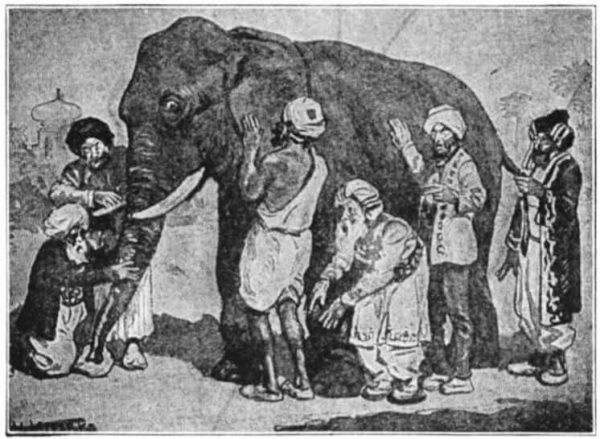Are All Religions on Paths to the Same God or Ultimate Truth?

Picture a mountain with many different trails going up to the top. That is Pluralism. Pluralism is the view that all religions are on different paths to the same God, or ultimate truth. This is probably what many people mean when they say that “all religions are true.” Can this be the case?
The short answer is no. Pluralism is a worldview like any other. What evidence can the Pluralist offer that all other worldviews are wrong except his?
Those who defend Pluralism often use the old story of the blind men and the elephant. The story is found in various forms in ancient Buddhist, Hindu, Jain, and Sufi texts.[1] And it goes like this.
One day, six blind men travelling together came across an elephant. One of them, feeling only the trunk, thought it was a snake. Another discovered only the ears and concluded it was a fan. The one who came across the body said that it was a wall; and, after finding a leg, another said it was a tree. Still another holding the tail declared it was a rope. Finally, the last blind man felt a pointed tusk and informed them that it was a spear.
The blind men represent all the different world religions. They all think they have the truth. In a way, they may have a little bit of truth about some things. But they are all wrong about ultimate reality, because there is no way they can ever see it.
Let’s consider everyone involved, including the one telling the story. The one telling the story, the Pluralist, is the only one with a clear, objective view of the truth. He alone can see that the object is an elephant. He seems to be saying that he knows enough about the truth to know that nobody can know the truth. Everyone else is mistaken.
My question is simple. How does the Pluralist know that he is right and everyone else is wrong? What is the evidence? That the ultimate truth can not be known is just an assumption. Why can’t one of the rest of us have a clear, objective view of the truth?
As Christians, we believe we can. Christians believe that God personally and decisively disclosed himself in the person of Jesus. So Christianity is an historical religion and worldview. For it to be true, certain historical events, such as the resurrection of Jesus, must have actually happened. And the evidence is available to study.
Actually, all worldviews should offer the evidence to support their claims, shouldn’t they?
[1]“Blind Men and an Elephant,” Wikipedia, available at https://en.wikipedia.org/wiki/Blind_men_and_an_elephant, accessed 6/5/20.
Thank you